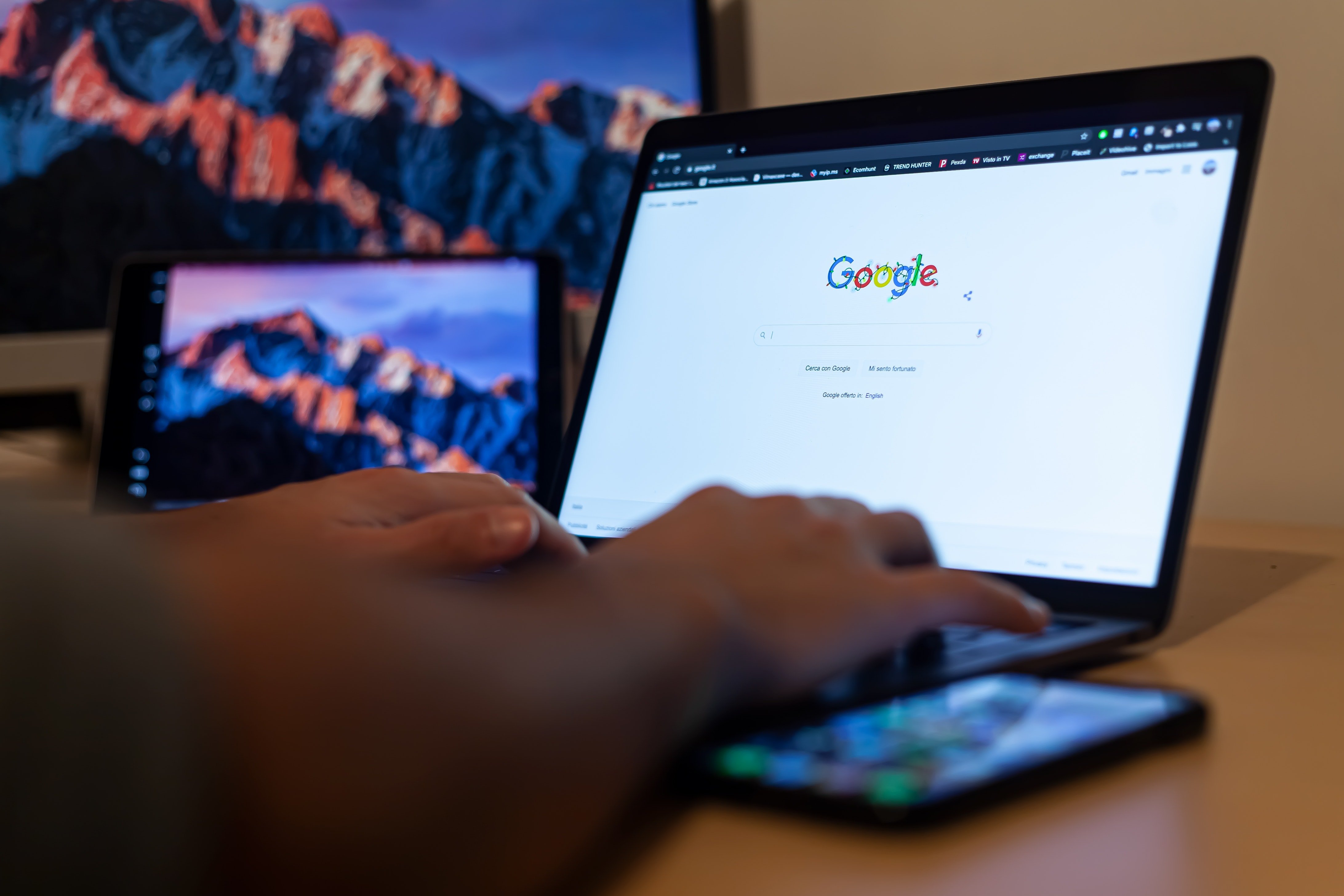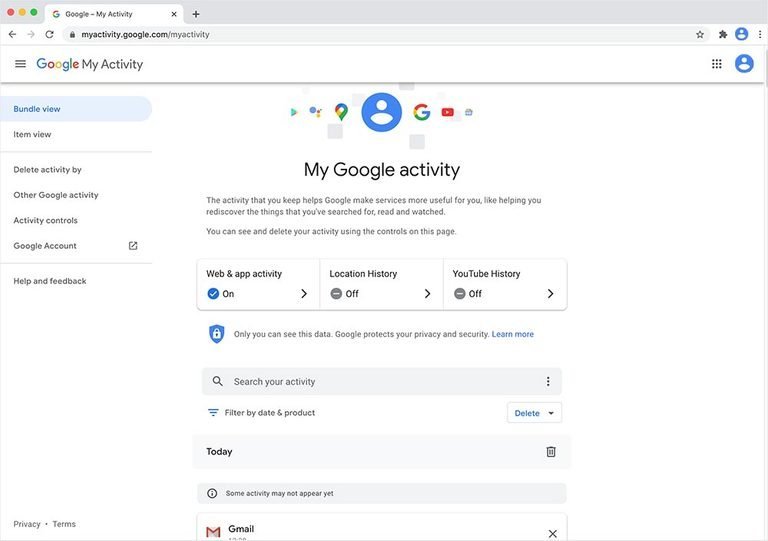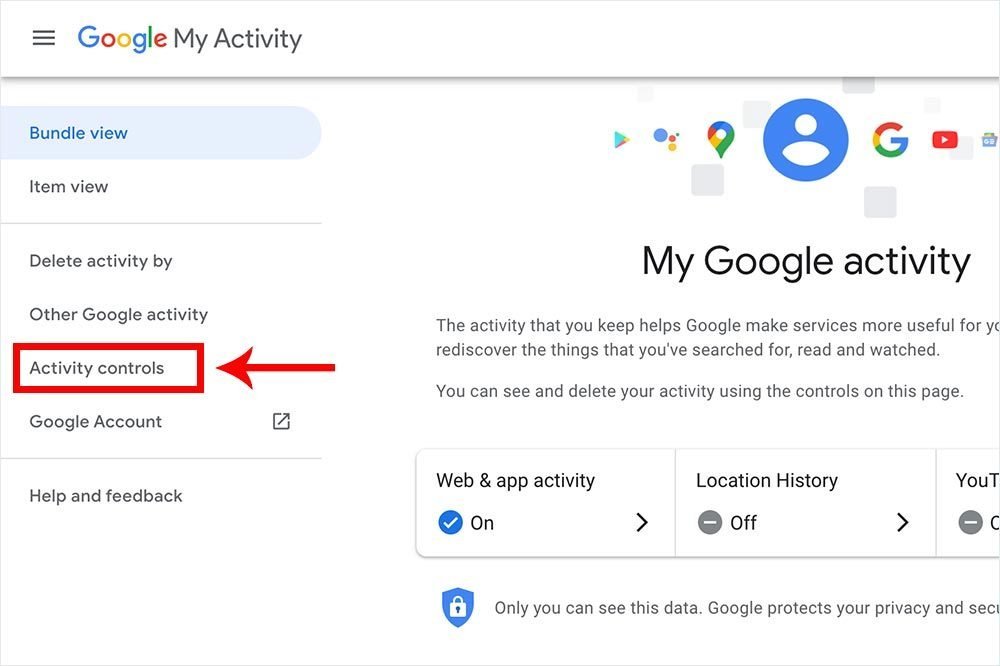November 30, 2021

Trends
Have You Googled Yourself?
This seems like a selfish question, but it’s not. It is related to your data security and privacy on the internet. If you haven’t googled yourself yet, try this short search:
Google your first name + last name + city + state.
How accurate is the data you found about you?
Take inventory of the quantity and accuracy of personal information about you and your household displayed online. That information is just a five-second Google search away from scammers, hackers, and everyone else out there.
Exactly how much information does the world’s most widely used search platform know about you? Knowing that Google is tracking you is one thing. But how much data does Google collect? It’s probably more than you realize.
The kind of data Google collects includes:
- The language(s) you speak.
- The things you buy and your spending budget.
- The places you look up in Google Maps and where you’ve been.
- Your favorite shops, especially if you link your rewards cards to Google Pay.
- Everything that goes on in your inbox — all your emails, attachments, and even the stuff you mark as spam or delete.
- Everything you save in your Google Drive — work documents, purchase receipts, photos, videos, and so on.
- Your YouTube viewing habits, including everything you’ve ever watched, any comments you’ve ever left, and anything you’ve ever searched for.
- What your upcoming schedule looks like (and everything you’ve done that was in your Google Calendar).
- The apps you open (if you’re using Android) and when you opened them.
- The questions you ask your Google Assistant.
- All the articles you read on Google News.
- All the ads you view and click on (if they were shown to you through Google services, partner websites, or mobile apps).
But believe it or not, Google is not what we should worry about specifically regarding your data security and privacy, but the people-search sites.

In 2020, people-search sites began releasing data they acquired from consumer and marketing databases. This data reveals your purchasing behavior, and other information that touches almost every part of your personal life.
Information from consumer databases makes the free versions of people-search profiles much more complete. You can type in a person’s name, and besides their full name, home address and phone number, you’ll see their occupation, education level, income, credit score, hobbies, political views, and more.
People-search sites are now mining consumer records and public records for gold: your data security and privacy. They’re doing this because Google’s algorithm rewards them for it. After all, what could be more unique than your cell phone number, home address, mother’s name, and preference between cats and dogs?
Most of the data collected by these people-search sites come from guess where… yes, Google!
So, how to prevent your data from being used with the wrong intentions?
The answer is simple: make sure what is the information you are sharing on the internet. But, how?
By accessing my activity, you can see, in detail, all the data collected from your searches: ads, news, YouTube… You can even filter your information by date and keywords in the same section.

To know the data collected from your location, you must access the timeline section of Google Maps. There you can find all your locations in a timeline and see where you were on a specific day and at a certain time. It is very easy to be geolocated. They can do it through cell phone antennas and even through the Wi-Fi networks connected to our mobile when walking down the street.
All this information can be downloaded in Google TakeOut, create a file that the same platform sends you, and make a backup copy with the information you select as a kind of bibliographic record of your life.
In the ad personalization section, you can also see a list of interests that Google has collected or assumed from you. If you scroll down, you will find some data such as the type of food you like, the genre of music you usually listen to or the style of clothes you buy online. This is for Google to try to sell you what you would purchase. Or you have already bought.
How do I pause tracking?
Google may know everything about your data security and privacy, (and your smartphone knows just as much) but having happy customers is still a priority, which means that pausing your web activity is a pretty easy process. On the “My Google Activity” page, select “Activity Controls” in the sidebar. This will take you to a page that explains exactly what information Google is tracking.

Also, how often do you really read the terms and conditions?
Often, we click “Accept” without stopping to read the terms of use, either for lack of time or lack of interest (or both).
And what can happen if you don’t read them?
1. The company cancels the services suddenly
One of the clauses that can be included in the tedious “terms and conditions of service” is the one that grants the company responsible for the application the right to suspend or cancel services at any time.
This is the case with the digital storage application Dropbox. From one day to the next, your entire account could disappear, and you are left without the data you have stored on its servers.
2. That it has access to all your photos, messages or location
“In theory, Instagram is free to do whatever it pleases with your photos,” reads the website of the software company Softonic.
And the fact is that when you install the app and accept the terms and conditions of use, you grant them a “non-exclusive” license to use the content you post.

But you also give them the right to use other data, such as your exact location. You may be giving an app access to your photos just by agreeing to terms of use.
It also happens with Google Assistant – or Siri, Apple’s voice assistant – which can “read, interpret and interact with your text messages,” explains Andro4all, a website specializing in news about Google’s operating system.
3. Selling your data to third parties
Facebook has had major scandals throughout its history. But the main one was the misuse of data of 87 million Facebook users by Cambridge Analytica during the 2016 US presidential campaign, which forced Zuckerberg, founder of the platform, to submit to a public hearing.
The company stated that it expected the Federal Trade Commission to sanction it with a fine of up to 5 billion dollars for privacy violations: it would be the highest penalty in history imposed by the United States against a technology company, according to The New York Times.
The last tip for privacy-minded folks? Don’t disclose any personal information unless absolutely necessary, and take time to review the terms of service on a digital purchase or account sign-up. Those terms will tell you precisely what the company plans to do with your data. After all, you don’t have to let your information fall into third-party hands, including those of data brokers. Your data security and privacy depend on you.
BTW, in case you work with data analytics, we have related job openings! Check them out HERE.









